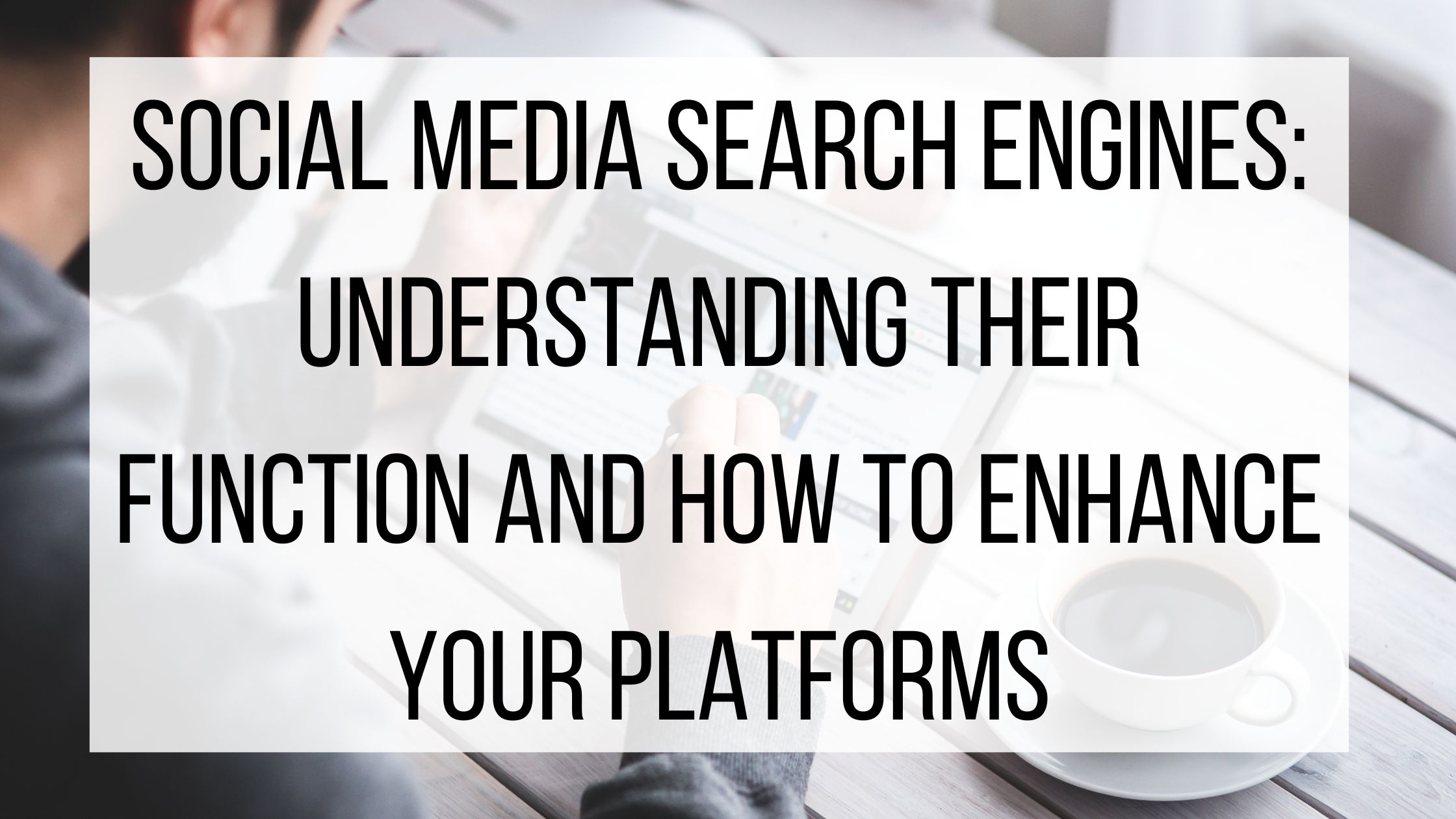Social Media Search Engines: Understanding Their Function and How to Enhance Your Platforms

Social media used to be where you would go to be entertained, or see what people in your network are up to. If you had a question or wanted to find recommendations for a product, you would head to a search engine like Google. These days, the lines between the two are blurring, and many people (especially younger audiences) are turning to social media as their main form of search engine. While traditional search engines are still alive and well, maintaining SEO is still important. Understanding how audiences use social media as their search engine will help you make the most of your SEO and social media strategy.
What Is Social Media Search?
Social media search is simply the act of looking something up by typing in a query in the search bar on a social media platform. This method allows users to actively find what they are looking for, rather than waiting for the algorithm to deliver what they are looking for. Being aware of social media as a search engine is especially important if Gen Z is part of your target audience. A big reason that social media search is appealing for audiences is that they are able to find different opinions, products, and recommendations from creators they trust, or other users who genuinely like the products that they are promoting. This form of content promotion is easy to watch, informative, and comes across as authentic and trustworthy.
Benefits Of Social Media Search:
One of the most important benefits of optimizing your content for social media searching is that you can reach a much wider audience. Whether you want to draw in people who are visiting your city or connect with people farther away who are looking for a product that you offer, social media searching allows you to expand your reach. When done well, your social media posts can even appear on traditional search engines as a result.
Social media searching also encourages word-of-mouth marketing. Say you post an Instagram Reel, and it reaches a potential customer. They could comment on it, send it to a friend, or go directly to your website to learn more. If they try your product or service and are happy with it, they are likely to share your Reel with more people in their network, or even share their positive experience on their own social media.
Competitor research is made easier through social media searching. If you want to see what your competitors are up to, just type their name into the search bar to get some insights. Many social media platforms will show you their official profile, as well as content that they have been tagged in, or hashtags people use related to their brand. You can see what their audience is saying, what the conversations surrounding them tend to center around, and how their following is compared to yours. This gives you great insight into how you can improve and implement some of those ideas into your own business. Be sure to stay true to your brand so that you do not come across as a copycat or knock-off version of your competitors!
How To Optimize Your Content:
Optimizing your content for social media searching is fairly simple. First, check your profile and check that everything is updated and uses terms that are relevant to you. Your handle, bio, About section, and links to your website or other socials should all be listed and give your audience a clear idea of who you are. Adding your location can also help boost your social media when people search. Even if you are primarily (or fully) an online company, letting people know where you are based helps boost you in search results. Lastly, add keywords to your posts. Using free tools like Google Keyword Planner can help you make the most out of your keywords so you have a higher chance of reaching your target audience.
Social media search engines are not going anywhere, so keep that in mind when creating future posts. Remember that your posts are not only for entertainment but are meant to reach your audience and help them find the answers that they have been looking for! Do you ever use social media search instead of traditional search engines? What is your favorite platform to search? Let us know in the comments!



2 Comments
hills of steel · December 2, 2024 at 10:45 pm
great insights of this is domain
tv.youtube.com/start · December 6, 2024 at 6:27 am
I thoroughly enjoyed reading this post! Your perspective on this topic is truly enlightening